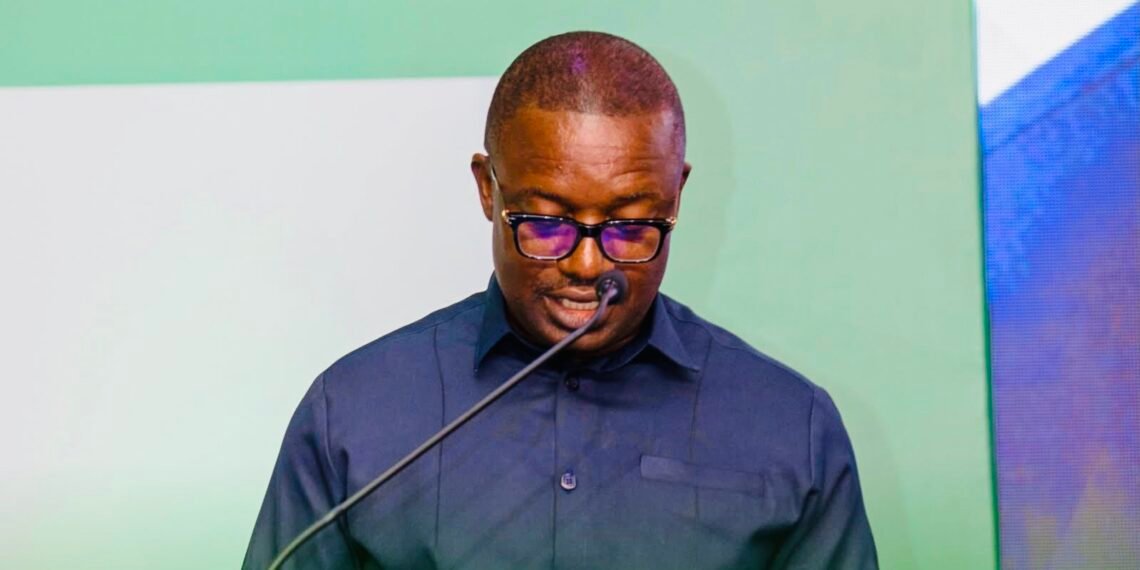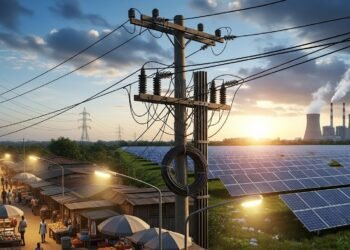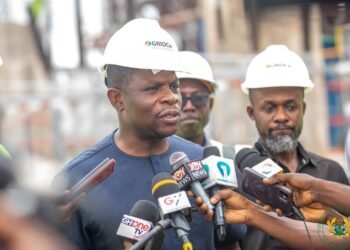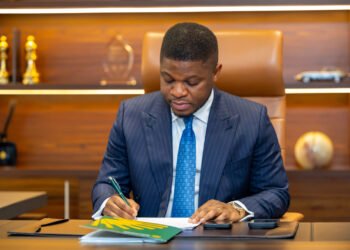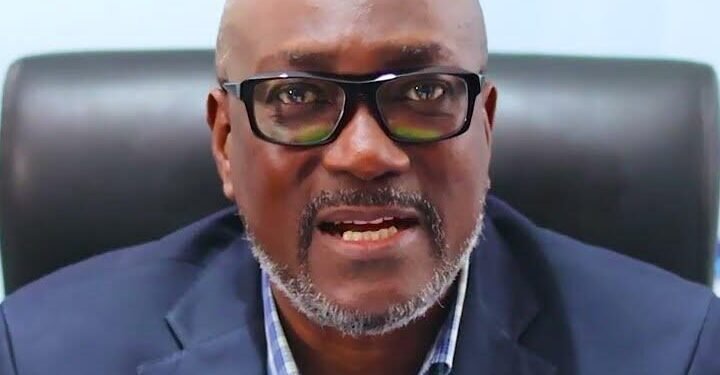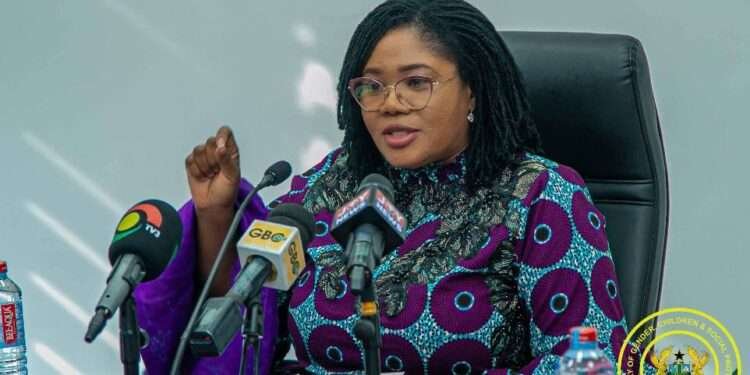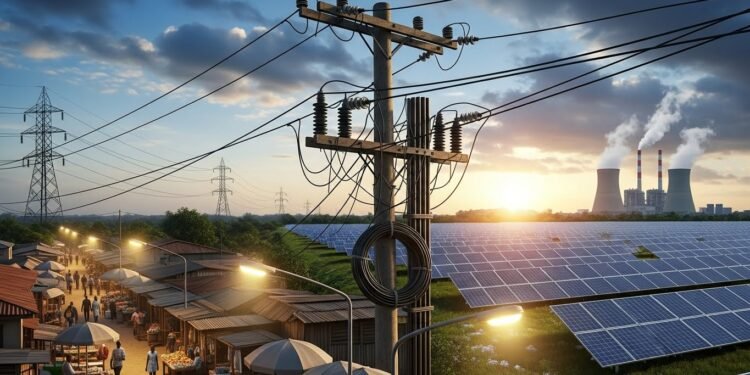Ghana’s Minister for Energy and Green Transition, Hon. John Jinapor, has called for urgent and innovative partnerships to finance Africa’s energy transition, stressing that governments cannot continue to bear the lion’s share of the continent’s energy investments.
Speaking as Guest Speaker at the 2025 Future of Energy Conference (FEC), Hon. Jinapor revealed that 80% of energy investments in Africa are currently funded by governments, a situation he warned was financially unsustainable.
“Whilst we require billions, we are able to mobilise just about 10% of what is needed to meet Africa’s energy demand.
“African governments alone cannot resolve this challenge. We need the private sector, civil society, NGOs, and international bodies to achieve this objective.”
Hon. John Jinapor, Minister for Energy and Green Transition
The Minister underscored that reliable, affordable, and sustainable energy is central to Africa’s industrialisation and inclusive economic growth.
Yet, despite the continent’s enormous resource potential, the energy poverty crisis remains acute, with more than 600 million Africans living without electricity.
In sub-Saharan Africa, nearly half of the population still lacks access, while rural electrification rates are as low as 25%.
“Energy poverty must be dealt away with if Africa is to achieve inclusive economic growth and secure its rightful place within the global economy.
“Collaboration and innovation are crucial if we are to overcome these challenges.”
Hon. John Jinapor, Minister for Energy and Green Transition
Ghana’s Energy Transition Roadmap

Detailing Ghana’s own strategies, the Minister pointed to the Energy Transition Framework being rolled out to decarbonise the power and petroleum sectors, alongside the creation of a Renewable Energy and Green Transition Fund to mobilise capital for low-carbon projects.
He highlighted ongoing projects such as the expansion of solar mini-grids to underserved communities, and a new initiative to connect 150 island communities to power through utility-scale solar projects.
Ghana, he added, is also advancing green hydrogen studies and its nuclear energy programme as part of efforts to diversify its energy mix.
On regional integration, Hon. Jinapor reaffirmed Ghana’s commitment to the West African Power Pool (WAPP), noting that Ghana currently supplies power to Togo, Benin, Burkina Faso, and Côte d’Ivoire.
He disclosed that discussions are ongoing with Nigeria on a barter arrangement, where Ghana would generate electricity from Nigerian gas for re-export back to Nigeria.
In addition, the government is preparing to roll out electric vehicles (EVs) across ministries as part of broader efforts to promote green mobility and reduce reliance on fossil fuels.
While championing the continent’s clean energy ambitions, Mr Jinapor cautioned against a “one-size-fits-all” approach to the energy transition.
He stressed that Africa must chart a path that balances climate commitments with economic realities, including industrialisation, job creation, and value addition.
“We are for green transitions and renewables, but it ought to be done in a carefully thought-out manner so we do not dislocate our economies.”
Hon. John Jinapor, Minister for Energy and Green Transition
He added that local processing of critical minerals, clean energy technology manufacturing, and skills development must be at the heart of Africa’s green transition strategy.
Financing Innovation for Africa’s Energy Future
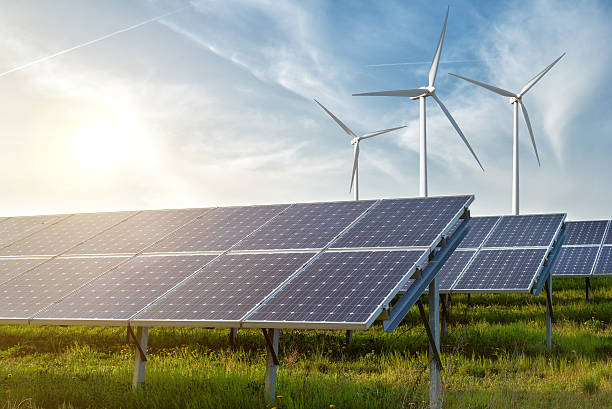
The Minister also emphasised the need for innovative financing mechanisms to close the continent’s vast energy funding gap.
He cited bond markets, carbon trading platforms, and blended green funds as instruments that could attract sustainable, competitive capital.
“In making our energy system sustainable, we make our economies resilient. In making them inclusive, we uplift millions out of poverty.
“In making them competitive, we position Africa as a strong voice in the global energy transition.”
Hon. John Jinapor, Minister for Energy and Green Transition
The Future of Energy Conference, organised annually by the Africa Centre for Energy Policy (ACEP), has become a key forum for dialogue on Africa’s energy future.
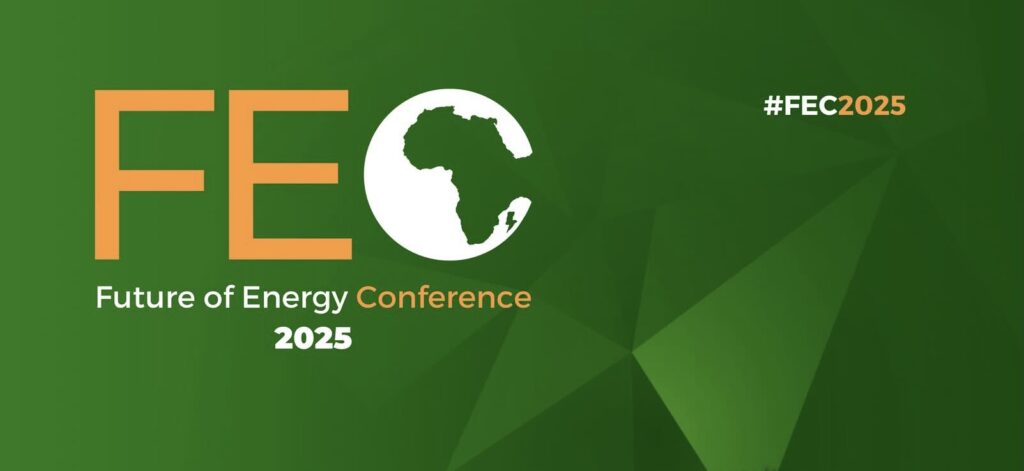
It brings together policymakers, industry leaders, multilateral agencies, academics, and civil society groups to deliberate on governance, policy, and financing frameworks that can accelerate Africa’s energy transformation.
This year’s edition focuses on mobilising capital for Africa’s energy transition, with a strong emphasis on bridging the continent’s energy access gap while driving industrialisation and competitiveness.
As the discussions in Accra highlighted, Africa’s energy future cannot be left to governments alone. The continent’s path to energy security, sustainability, and industrialisation will require bold partnerships, innovative financing, and inclusive policies that leave no one behind.
READ ALSO: A Smart Move to Save the Cedi – Women in Forex Ghana Prez Hails BoG Directive

